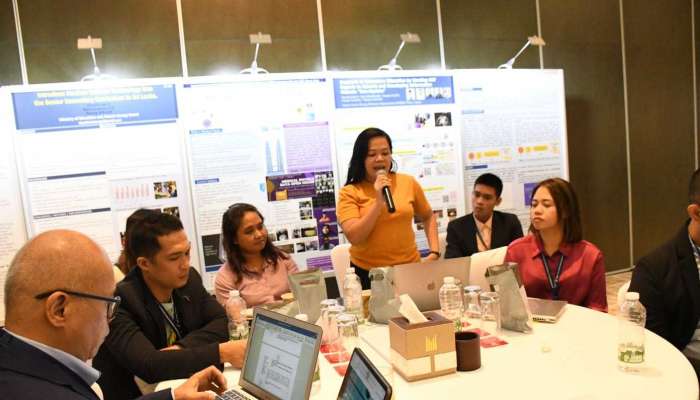
Muscat: The Ministry of Education, in cooperation with the International Atomic Energy Agency, concluded on Thursday the regional workshop on best practices for teaching nuclear science and technology at the secondary level.
The five-day workshop involved the participation of 81 guests from 22 countries, in order to empower teachers at the secondary stage and enhance their teaching skills related to nuclear science and technology and raise their level of awareness about the wide and diverse applications of nuclear technology in various areas of life.
The five days of the regional workshop witnessed a number of sessions including various presentations on topics related to the best practices and experiences in teaching nuclear sciences and technology.
On the last day, moderators of all the sessions presented the outcomes of the papers presented in these sessions.
They agreed on an action plan to contribute to achieving the goal of reaching 10 million students through the programmes provided by the regional technical cooperation project RAS0091 on strengthening education in nuclear science and technology.
The strategy for building teachers’ skills with regard to facilitating learning of nuclear science and technology subjects in a sustainable manner was also approved.
Posters displayed in the workshop included experiences of the participating countries, among which: teaching nuclear science and technology from the perspective of Bangladesh, linking nuclear science and technology with secondary school curricula in Syria, developing curricula and teaching tools in nuclear science and technology in Jordan, placing atomic energy and nuclear science in secondary science curricula in Nepal, introducing nuclear science technology into the upper secondary school curricula in Sri Lanka, supporting secondary education by sending nuclear science and technology experts to schools, developing the Ene Hyakka information website, and applying radiological detection in order to apply best practices in linking nuclear science and technology in secondary education applications to the nuclear devices laboratory, using Learner Guided Activity Sheets (L-GAS) to help improve the academic performance of 10th grade students, breaking down stereotypes about nuclear science and technology, and enhancing their benefits to society and the environment through curriculum design and evaluation.
The workshop came up with several recommendations, including: completing a series of best practices guide on teaching nuclear science and technology at the secondary level, in addition to a special strategy for building teachers’ skills related to nuclear science and technology topics in a sustainable manner, and formulating a strategic action plan agreed upon unanimously to enhance the achievement of the desired goal to reach 10 million students by 2025.
It is worth noting that the five-day workshop included presentations by experts in the field of nuclear science and technology, and special poster presentations.
The workshop also included focused sessions under the slogan “promoting awareness of nuclear science and technology in secondary education in the Asia-Pacific region” where several topics were discussed, including strategic partnership to support good governance, linking nuclear science and technology to school curricula, co-curricular activities, teaching strategies, tools to facilitate learning, evaluation, monitoring, and follow-up.